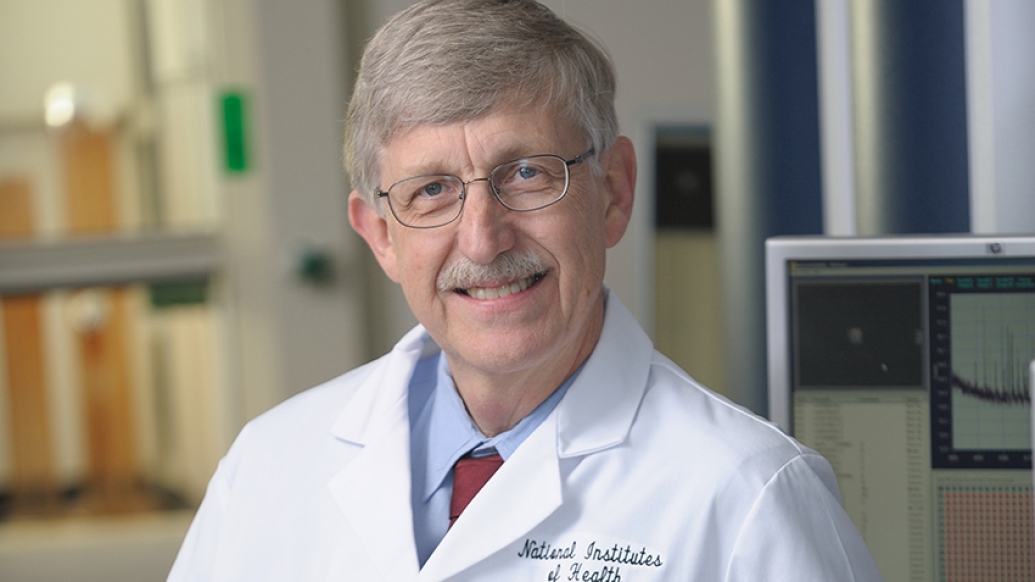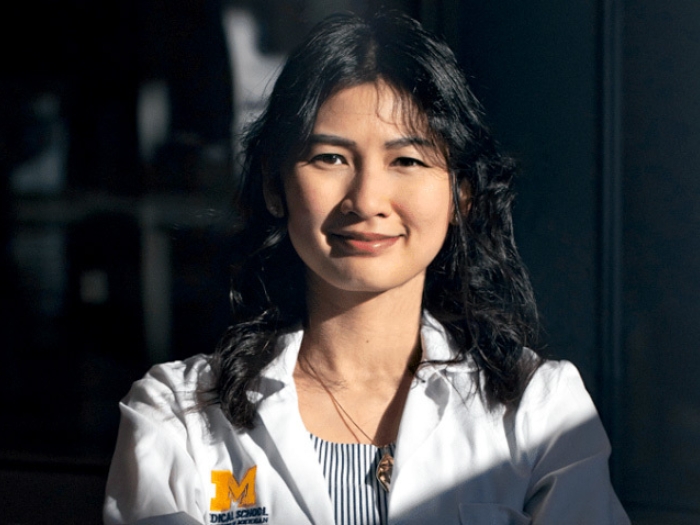Francis S. Collins, the director of the National Institutes of Health, shared words of advice for new medical grads before he spoke during U-M’s commencement weekend.
7:00 AM
Author |

Francis S. Collins, M.D., Ph.D., the director of the National Institutes of Health who may be best known for leading the Human Genome Project, was the featured speaker during the University of Michigan Medical School's 167th commencement ceremony May 12, 2017, in Hill Auditorium.
Collins' personal research efforts, conducted in part at Michigan Medicine, led to the isolation of the genes responsible for cystic fibrosis, neurofibromatosis, Huntington's disease and Hutchinson-Gilford progeria syndrome.
As NIH director, Collins oversees the work of the largest institutional supporter of biomedical research in the world, spanning the spectrum from basic to clinical research. He was appointed by then-President Barack Obama in 2009 and was asked to remain in the position by President Donald Trump in January.
At NIH, Collins has helped launch major research initiatives to advance the use of precision medicine for more tailored health care, increase our understanding of the neural networks of the brain to improve treatments for brain diseases, and identify areas of cancer research ripest for acceleration to improve cancer prevention and treatment.
While director of NIH's National Human Genome Research Institute, he oversaw the Human Genome Project, a 13-year international effort to map and sequence the 3 billion letters in human DNA. Project scientists finished the sequence in April 2003, coinciding with the 50th anniversary of James Watson and Francis Crick's seminal publication describing the double-helix structure of DNA.
It remains the world's largest collaborative biological project and one of the most significant scientific undertakings in modern history.
MORE FROM THE LAB: Subscribe to our weekly newsletter
Before the commencement ceremony, Collins spoke to Michigan Health Lab.
What advice do you have for the graduating class?
Collins: Be prepared for rapid changes in medicine. Keep your focus on what really matters: How are you going to use your talents to make the world a better place? Ultimately, that will be a lot more important than what titles you achieve or how much money you make. Oh yeah, and be prepared to learn from trials and failures; they are just part of life.
Keep your focus on what really matters: How are you going to use your talents to make the world a better place?Francis S. Collins, M.D., Ph.D.
What's one of the biggest lessons you've learned in the past nine years as NIH director?
Collins: That biomedical science is moving at breakneck speed, and NIH needs to be nimble to make the most of new opportunities.
What advice would you give your successor?
Collins: Surround yourself with bright and visionary people, and give them permission to tell you when you are missing opportunities or about to mess up.
This year, U-M is celebrating its bicentennial. What about your time in Ann Arbor are you most proud of?
Collins: Having the chance to lead an incredibly talented group of students, postdocs and scientific staff, leading to the discovery of the cystic fibrosis, neurofibromatosis and Huntington disease genes.
What was one of the best things about being a member of the U-M faculty?
Collins: I was surrounded by incredible colleagues and a terrifically interactive environment for sharing ideas and planning bold research projects.

Explore a variety of healthcare news & stories by visiting the Health Lab home page for more articles.

Department of Communication at Michigan Medicine
Want top health & research news weekly? Sign up for Health Lab’s newsletters today!





